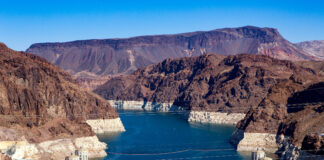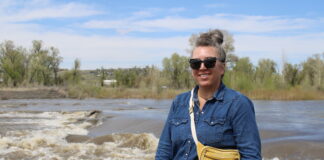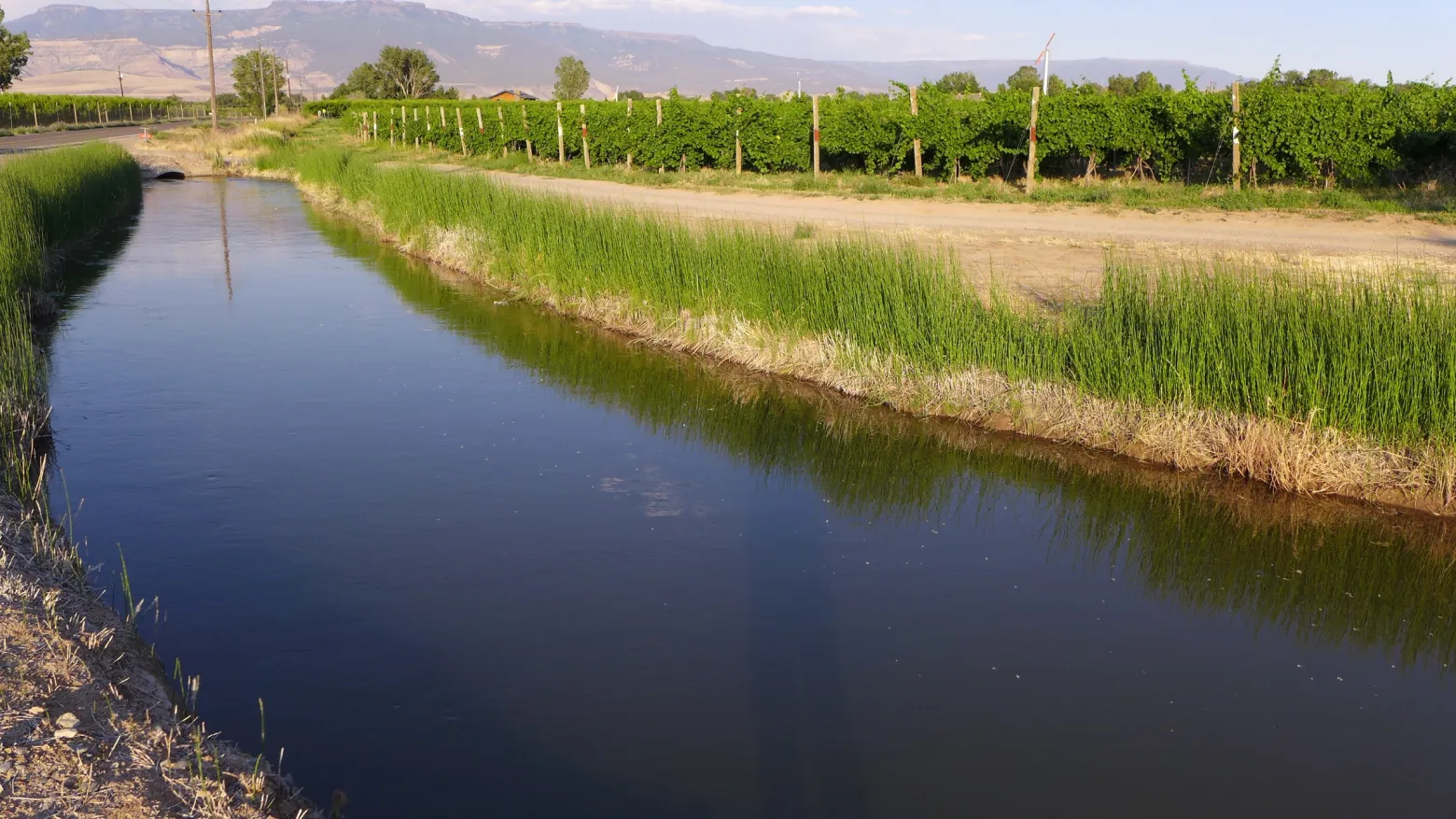
Colorado lawmakers have suspended an attempt to prohibit outside investors from profiting off the state’s water.
On Thursday, the Senate Agriculture & Natural Resources Committee voted 5 to 2 to approve an amendment sending Senate Bill 29 back to the interim Water Resources Review Committee for more study and input from water users. However, at the end of Thursday’s hearing, Sen. Jerry Sonnenberg, acting as chair, decided to “lay over” the bill, meaning the committee would take it up at another time.
But with the 2022 legislative session ending on May 11, there is probably neither time nor the desire from lawmakers to push the bill through, meaning that, to all appearances, the legislation is dead. The Senate Agriculture & Natural Resources Committee would now have to take the measure back up and move it along to the full Senate and then to the House in order for it to go back to the interim committee.
Sonnenberg, R-Sterling, and Sen. Kerry Donovan, D-Eagle County, who initially proposed the back-to-interim-committee amendment and is a sponsor of the bill, were the two votes against sending the issue back to the interim committee. It’s unclear why Donovan, who did not return a call for clarification as of presstime, voted against her own amendment.
“We gave it a heck of a college try,” said Donovan, the twice-elected representative for Senate District 5, which includes Pitkin County, who will be stepping down at the end of the year due to term limits. “And I think we continued an important conversation. Water always takes a long time to figure out and I was certainly hopeful that by having a bill we would force conversation.”
Senate Bill 29, with Western Slope sponsors Donovan and Sen. Don Coram, R-Montrose, was an attempt to stop out-of-state investors in agricultural water from making a profit off a public resource that grows scarcer in a water-short future driven by climate change.
Many say investment water speculation is a threat, but few agree on what should be done about it. A legislative fix, despite several attempts at tweaks with amendments throughout the session, failed to gain support from the constituency the bill aimed to protect: agricultural water users. Although some agricultural water rights holders recognize there could be negative impacts to their communities if water is sold to investors, they don’t want the state making the process of selling their ranch harder, placing restrictions on who they can sell to or limiting their ability to make a profit.
The original bill would have given the state engineer at the Department of Water Resources the ability to investigate complaints of investment water speculation and fine a purchaser of water rights up to $10,000 if they determine speculation is occurring.
That version failed to gain traction, as did a handful of proposed “strike-below” or “strike-through” amendments, including one put forth by the Colorado River Water Conservation District, which would have addressed speculation using the abandonment principle by saying that if someone was getting paid to not use their water, they could be punished by losing their water right.
Donovan then floated the most recent amendment that would have sent the issue back to the interim Water Resources Committee for further study and input from water users, a move Coram said was kicking the can down the road.
Lawmakers scolded some in the water community for what they said was a lack of cooperation and communication around developing legislation aimed at preventing speculation.
“We have an ineffective water group that won’t have a conversation with lawmakers anymore,” Sonnenberg said. “When we have a bill they just take a position and quit working with people.”
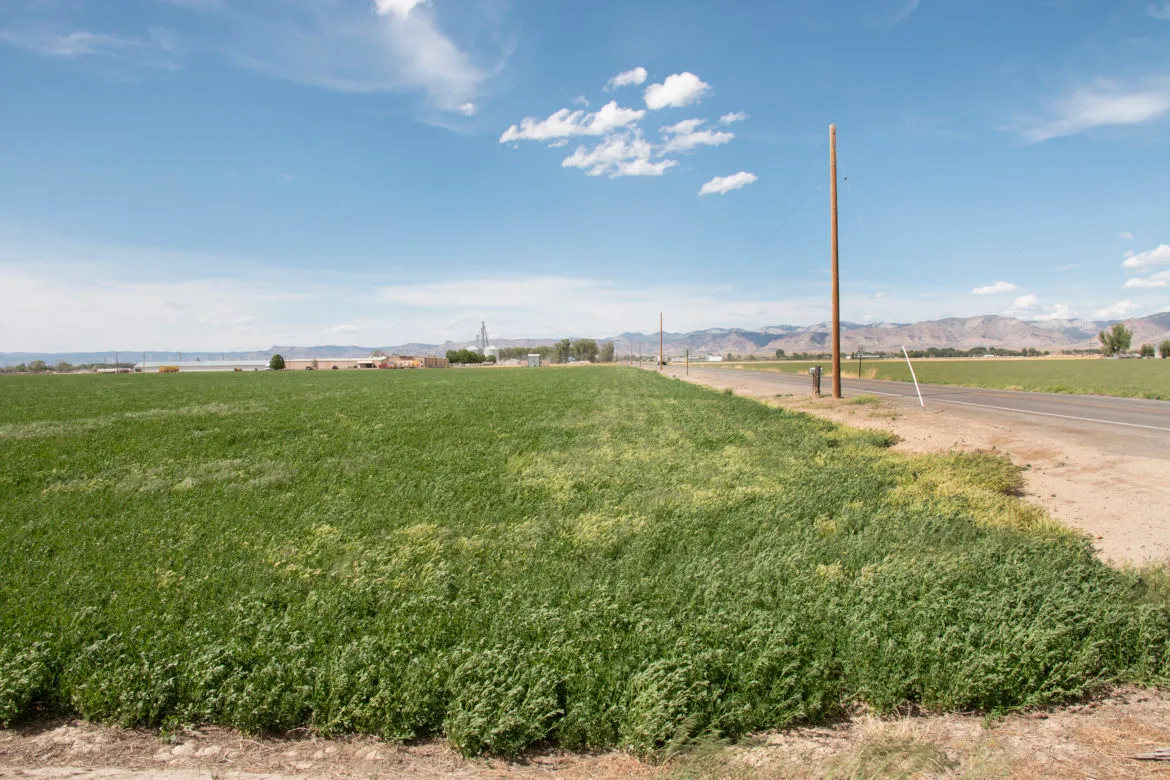
Bill opposition
At Thursday’s hearing, several people testified in opposition to the bill. Colorado Water Congress, Colorado Farm Bureau, Rocky Mountain Farmers Union, as well as three Grand Valley water providers, among others, were opposed to the bill.
Former state representative from Gunnison County Kathleen Curry works as a lobbyist on behalf of the Orchard Mesa Irrigation District, Grand Valley Water Users Association and the Ute Water Conservancy District, organizations that provide agricultural and domestic water to the Grand Valley. She said her clients would support taking more time to consult with experts and stakeholders.
“My folks have two major concerns regarding the legislation as it was introduced and as it’s been contemplated so far,” she said. “One has to do with the additional time needed to obtain feedback from the affected parties and water rights owners and secondly, they are still a bit unclear about the need for legislation, and the scope of potential impacts to water rights owners remains a concern.”
The Grand Valley has been the center of investment water speculation concerns, where New York City-based private-equity firm Water Asset Management has been acquiring irrigated farmland. WAM is now the largest landowner in the Grand Valley Water Users Association. But as long as WAM keeps putting the water to beneficial use and keeps the land in agricultural production — which it appears to be doing — it doesn’t count as speculation.
Still, the threat from out-of-state, urban interests loomed large at Thursday’s hearing.
“We were hearing across our districts and state about a new type of player in the water world,” Donovan said. “And that player was custom suits and shiny shoes that call big cities home. … There was concern from many in the water world that probably an investment firm was not going to be the best partner moving forward.”
In an attempt to address the issue in 2020, legislators convened a workgroup, made up of water managers and policy experts across sectors to explore ways to strengthen the state’s anti-speculation laws. Saddled with the incredibly complex task of figuring out how to protect Colorado’s water from profit-seeking investors without infringing on private property rights, an August 2021 report from the workgroup did not give recommendations to lawmakers because they could not come to a consensus about which concepts to implement. The group’s report did, however, lay out potential avenues new regulations to prevent investment water speculation could take.
For Loma rancher, workgroup member and President of GVWUA Joe Bernal, the lack of consensus meant that lawmakers should not move forward with any legislation.
“Our group found it very important that more information be gathered from landowners and stakeholders,” he told the committee Thursday. “I find it very concerning that bill sponsors moved forward with the crafting of an anti-speculation bill when there seems to be very little support from the people and the citizens it seems the sponsors are trying to protect.”
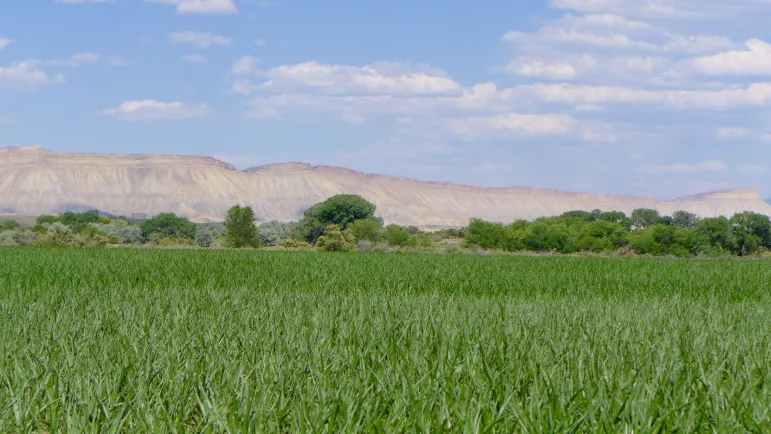
Threats to agriculture
The concern at the heart of the speculation issue is not that investors could profit off of Colorado’s water. Underneath, there is a broader fear about the loss of agricultural land and with it, a way of life and a part of Colorado’s history, culture and identity. The work group identified the large-scale, permanent dry-up of agricultural lands as the No. 1 risk from speculators.
For Bernal, the bigger threat to Colorado agriculture comes from developers who would subdivide the land for houses and ranchettes and take it out of agricultural production. The acres that were sold to WAM, which are still being farmed, could have been sold instead to developers, an outcome he doesn’t want to see.
“I think it could be studied further, but at this point we don’t have a problem yet,” Bernal said. “I’m not saying I’m glad WAM is here, but it seems to be the lesser of two evils. Given the choice of having the land developed, it’s a better option.”
Aspen Journalism covers rivers and water in collaboration with The Aspen Times. This story ran in the April 23 edition of The Aspen Times.
The Water Desk’s mission is to increase the volume, depth and power of journalism connected to Western water issues. We’re an initiative of the Center for Environmental Journalism at the University of Colorado Boulder. The Water Desk launched in April 2019 with support from the Walton Family Foundation. We maintain a strict editorial firewall between our funders and our journalism.



